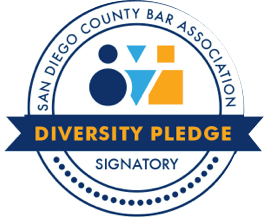Santa Maria Lemon Law
- Home
- /
- Practice Areas
- /
- Lemon Law
- /
- Santa Maria Lemon Law
Santa Maria Lemon Law Attorneys
Santa Maria, California, is home to over 100,000 people, making it the most populous city in Santa Barbara County. Santa Maria is part of the same metropolitan area as Santa Barbara, which means that many of its residents and visitors travel daily between the two cities, to other places in the county, and along U.S. Highway 101 to Los Angeles or San Francisco.
Santa Maria’s mild weather, beautiful views, and world-famous barbecue all make it a popular destination for tourists. Workers stream into Santa Maria every day to support the tourism and service industries, make deliveries, and perform other essential business tasks.
One common thread linking all this bustle is the need for safe, reliable vehicles. When Santa Maria residents and workers purchase or lease a car, they expect their vehicle to be safe and run well. When repeated vehicle problems get in the way, vehicle owners can be left frustratedーor even have their safety put at risk.
California lemon law protects vehicle owners who buy or lease retail vehicles only to discover hidden defects. To learn more, talk to an experienced Santa Maria lemon law attorney today.
Lemon Vehicle Statistics in Santa Maria
Over 415,000 vehicle owners registered their vehicles in Santa Barbara County in 2021, according to the California Department of Motor Vehicles (DMV). These registrations included over 282,000 passenger cars, pickup trucks, SUVs, and vans.
The DMV did not track how many of these vehicles became the subject of a lemon law claim. New vehicles are more likely to be included in lemon law claims than renewal registrations, but any vehicle that is still under warranty could be part of a lemon claim.
In a study of lemon lawsuits filed in state courts from 2018 to 2021, the California Public Interest Research Group (CALPIRG) and fellow researchers found that only 0.45 percent of new vehicle registrations in this time period ended in a court case.
The researchers noted, however, that most lemon law claims are settled without a lawsuit. Thus, the number of court cases doesn’t accurately reflect the number of defective vehicles sold between 2018 and 2021 that fall under the lemon law. For example, while 10,707 lemon law claims were filed in California courts in 2021, approximately 6.3 million vehicles with hazardous un-recalled defects were on California roads.
Types of Defects Reported by Vehicle Owners
The CALPIRG researchers also noted that lemon lawsuits filed in court typically focus on life-threatening defects or defects spread throughout a vehicle. Many lemon law claims focus on defects that are less deadly, but that still make a vehicle unsafe or impossible to drive.
Computerized systems, high-tech sensors, and other advances in vehicle engineering mean that today’s vehicles have a record-high number of parts and systems. A defect in any of these parts or systems can cause issues. Some defects can spread to other parts of the vehicle as well as systems break down.
Just a few of the defective parts named in California lemon lawsuits in 2021 include:
- Brakes and emergency brake systems
- Lane change assist systems
- Fuel filters and injectors
- Engines
- Navigation and power steering systems
- Safety systems, including backup cameras and seatbelts
- Sensors, including radar collision, oxygen, and tire pressure sensors; and
- Structural issues, including front engine mounts and strut assemblies.
CALPIRG’s research found that some vehicle manufacturers are named in lemon lawsuits more often than others. General Motors, for instance, was named far more often than Toyota. The researchers urge vehicle owners to learn as much as they can about automakers’ track records with lemon law claims.
Whether your vehicle has these problems or another issue, it’s important to speak to an experienced lemon law attorney.
Understanding the Basics of California Lemon Law
California’s lemon law began in the Song-Beverly Consumer Warranty Act, first passed in 1970. The Act required product manufacturers, including automakers, to:
- Follow the terms of their express warranties as long as the warranties were in effect,
- Provide the parts and repair facilities needed to fulfill their warranty obligations,
- Fix problems within a reasonable number of attempts or provide refunds if they cannot; and
- Pay reasonable attorney’s fees for consumers who win claims under the Act.
The law was amended in 1982 to clarify what counted as a “reasonable number” of repair attempts. Added provisions in 1998 stopped automakers from forcing vehicle owners to sign confidentiality agreements and added protections for small business owners. In 2007, the lemon law’s protections were extended to military service members stationed in California, even if they purchased their vehicles in another state.
Today, California’s lemon law applies to vehicles purchased or leased “at retail.” It includes both vehicles obtained from dealerships and those obtained through a direct purchase from the manufacturer. Personal or household vehicles are covered under the Act, as are business vehicles when a business owns five or fewer total vehicles, and the suspected lemon weighs less than 10,000 pounds empty.
In the 1970s, automakers argued that a “reasonable number” of repair attempts could be as many as thirty visits to the shop. The 1982 amendments, however, limited the “reasonable number” of repair attempts. Today, as few as two repair attempts is all you need to show a reasonable number of repairs were attempted. And any vehicle that is in the shop for more than 30 days total will likely meet the lemon law’s “reasonable attempt” requirements.
Should I Go to Arbitration?
Many automakers offer arbitration as an alternative to a lemon lawsuit. Automakers claim that arbitration is cheaper and quicker than a court case. And while these claims are often true, the speed and frugality of arbitration often come at a steep price. There is no jury and no right to appeal. The decision is final, whether or not the law is followed by the arbitrator.
In arbitration, a third-party arbitrator hears evidence from both the vehicle owner and the automaker. Both parties may be represented by their attorneys at arbitration. The arbitrator then issues a decision, which both parties must follow.
In these ways, the process is similar to a court case. Arbitration is often quicker and cheaper than court, however, because many rules are relaxed in arbitration. Also, arbitrators focus on only one type of case rather than hearing all claims from any citizen.
What’s the cost? Automakers champion arbitration because arbitrators tend to come from backgrounds in the auto industry. Statistics examining arbitration of lemon law claims reveal that automakers win more often in arbitration, even when lemon vehicle owners have a valid legal claim.
Before you agree to arbitration, talk to an experienced Santa Maria lemon law attorney. Your lawyer can help you determine whether arbitration is right for you.
Can I Afford an Experienced Santa Maria Lemon Law Attorney?
Lemon vehicles can be expensive. Not only have you just purchased or leased a vehicle, but the costs of towing, alternative transportation, and mechanic’s bills may be piling up. With so many unexpected expenses on your plate, hiring an attorney may seem like one more thing your family just can’t afford.
California’s lemon law addresses this problem in several ways. Under the Lemon law, owners of lemon vehicles are entitled to compensation for three different categories of losses connected to the defective vehicle:
- The vehicle itself. Lemon law allows vehicle owners to receive either a refund of the purchase price or a “substantially similar” vehicle to replace the lemon. The vehicle owner may choose which one they want.
- Costs related to vehicle problems. For instance, you may have racked up hundreds of towing charges to take your vehicle to the dealership when it broke down. While your vehicle was in the shop, you may have spent money on a rental car, a rideshare like Uber or Lyft, or public transportation like bus fare. These are called “incidental and consequential damages.” You could recover them in a successful lemon law claim because you wouldn’t have incurred them if the vehicle wasn’t a lemon.
- Attorney’s fees. Successful lemon law claimants can require an automaker to pay their attorney’s fees. This arrangement means that you may pay little or nothing out of pocket for your attorney’s help.
- Civil Penalties. When the automaker willfully fails to follow the California lemon law, the consumer is entitled to civil penalties in an amount up to two times actual damages. This is an amount in addition to the repurchase price, incidental and consequential damages, and attorney’s fees and costs.
In addition, many Santa Maria lemon law attorneys work “on contingency,” which means they don’t receive a fee if they don’t win compensation for you. Attorneys often offer free consultations, in which you can discuss payment before you hire your lawyer.
No one buys or leases a vehicle hoping for a lemon. Vehicle owners pay for a new or certified pre-owned vehicle because they need safe, reliable transportation. When vehicle defects threaten a driver’s or passenger’s safety or leave the vehicle stranded in the shop, owners can feel frustrated, angry, betrayed, or hopeless.
If this sounds familiar, you’re not alone. Talk to the team at Wirtz Law APC today. Our experienced Santa Maria lemon law attorneys will help you understand your legal rights and take an informed step toward the compensation you deserve. To learn more, contact our office today to schedule a free, confidential case evaluation.
Our Practice
Over 97% Success Rate
In Lemon Law Claims
From the moment I contacted them, Jessica was responsive, informative, and made us feel heard. They were able to navigate the complicated legal process with ease and fought for our rights as a consumer. Ultimately, their diligence and expertise in the field led to a successful outcome for my family. I would highly recommend this…





